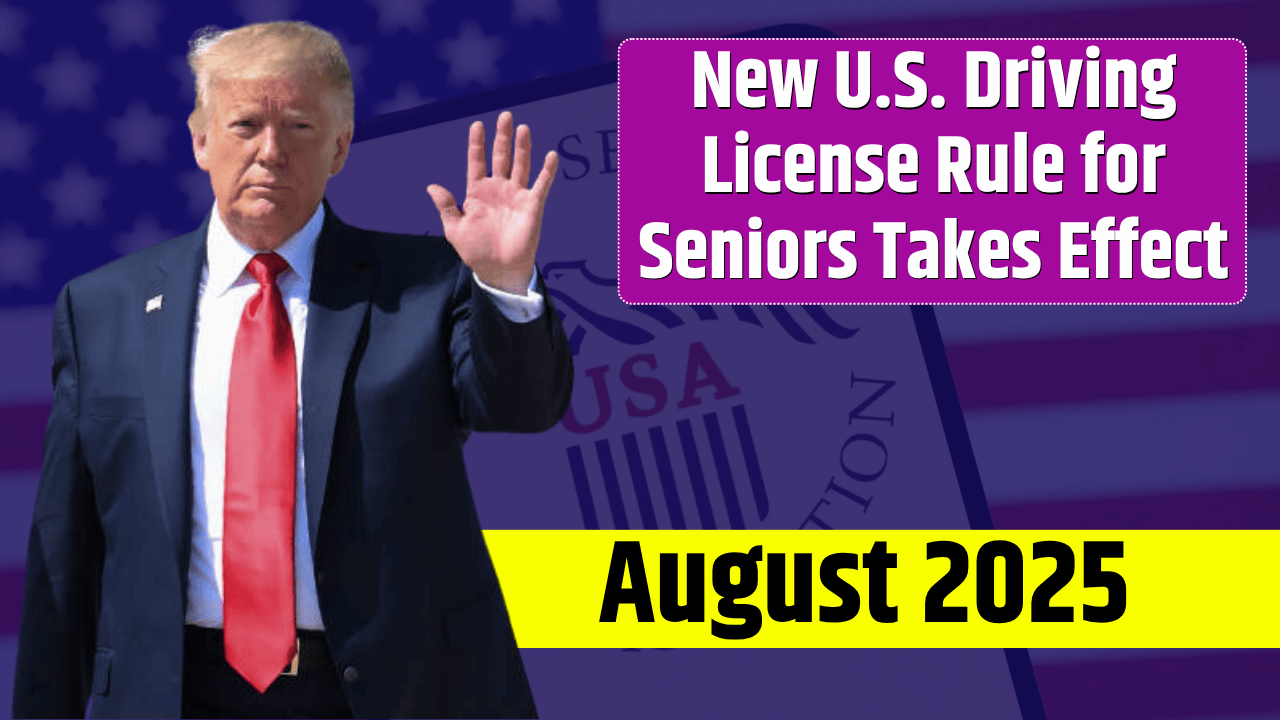Canada is preparing for major updates to senior driver licensing rules beginning in August 2025, not July as widely reported in headlines and social media posts. While many sources have incorrectly framed these changes as federally mandated, the reality is more nuanced and rooted in provincial decision-making.
Here’s what older Canadian drivers—and their families—need to know about what’s changing, what isn’t, and how to stay prepared.
Table of Contents
Driver Licensing in Canada: Who’s in Charge?
In Canada, driver licensing is managed by provincial and territorial governments, not the federal government. However, with a growing senior population and increasing concerns about road safety, provincial authorities have begun working toward standardized rules for drivers aged 70 and older.
While there is no federal law, provinces and territories are expected to implement a coordinated framework over time. These updates are part of a broader strategy to keep roads safe while maintaining independence for aging Canadians.
What Are the New Rules for Seniors?
The new senior driver rules, rolling out in August 2025, include the following core updates:
- Mandatory medical exams at age 70
- Vision and cognitive assessments during license renewal
- Optional or required refresher driver courses in some provinces
- Conditional driving restrictions (e.g., no night driving or highway use)
Each province will customize how and when these guidelines are implemented. For instance, Ontario may emphasize vision testing at age 80, while British Columbia could introduce early cognitive screenings at 70.
Why Are These Changes Happening?
Canada’s senior driver population is growing quickly, and while many older adults remain capable behind the wheel, aging naturally brings challenges such as:
- Diminished vision and hearing
- Slower reaction time
- Increased risk of cognitive decline
The goal of the new policies is to:
- Identify health-related driving risks early
- Ensure safer roads for all users
- Support seniors in staying mobile for as long as safely possible
Medical Exams: What Will They Involve?
Seniors won’t automatically lose their licenses at age 70. Instead, they’ll undergo regular health screenings, with doctors evaluating:
- Vision acuity and field of vision
- Cognitive alertness and memory
- Motor coordination and reflexes
- Medication use and overall health
If a concern is flagged, the driver may be referred for a road test or in-depth evaluation. In many cases, rather than losing driving privileges entirely, seniors could receive restricted licenses that limit driving conditions.
Key Concerns: Cost and Discrimination
Two of the biggest concerns raised about these updates include:
1. Affordability
Medical exams, vision tests, and cognitive evaluations can cost hundreds of dollars—an issue for seniors living on fixed incomes. Provinces have not yet confirmed if provincial health plans will cover these costs. Coverage will likely vary by region.
2. Fairness
Some advocacy groups argue that these policies could violate the Canadian Human Rights Act, which prohibits discrimination based on age or disability. While governments insist the focus is on driving ability, not age, no major legal challenges have occurred—yet.
Will Seniors Be Left Without Transportation?
Losing a license can lead to social isolation, which is why many provinces are preparing to enhance transportation alternatives, including:
- Community shuttle services
- Paratransit and accessible transit options
- Discounted or subsidized rideshare programs
- Taxi vouchers for seniors
These initiatives aim to ensure seniors maintain access to essential services, groceries, healthcare, and social activities—even if they can no longer drive independently.
How Seniors Can Prepare
Seniors approaching age 70 can take several proactive steps to keep driving safely:
- Schedule annual eye exams
- Take a senior-focused defensive driving course
- Maintain a healthy lifestyle and manage chronic conditions
- Review medications that may impair driving
- Stay informed on your province’s specific rules
Bottom Line
There is no federal senior driving law taking effect in August 2025, but Canadian provinces are aligning around a shared goal: keeping older drivers safe while maintaining their mobility and independence. These changes are not about punishing seniors—they’re about early identification of risk, public safety, and providing supportive alternatives when needed.
While the new rules may present challenges—particularly around cost and accessibility—they also open the door to safer roads and better aging support. For seniors and their families, staying informed and proactive is the best way forward.
FAQs
Is this a national law?
No. Licensing is a provincial matter, but provinces are coordinating efforts.
Do all provinces have the same rules?
No. The guidelines are similar, but each province will decide on implementation and timelines.
Do seniors lose their license at 70?
No. They undergo a medical exam and may receive follow-up evaluations if needed.





















